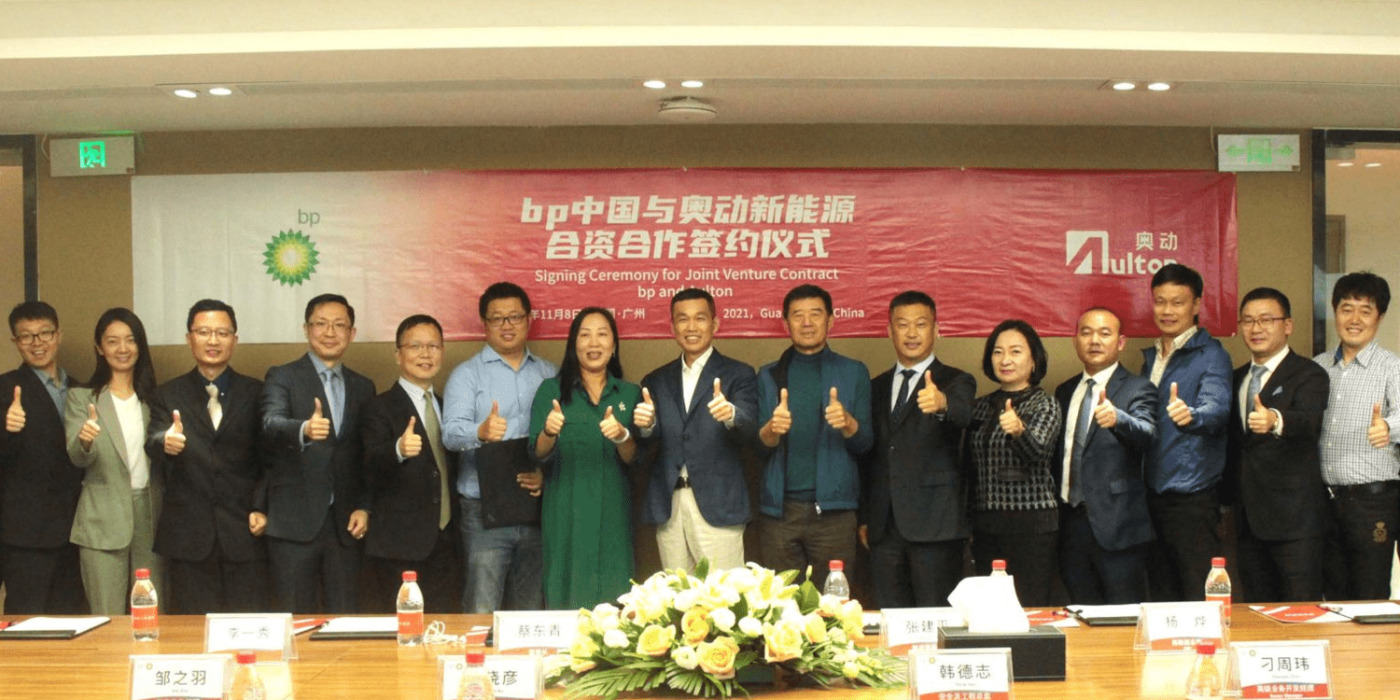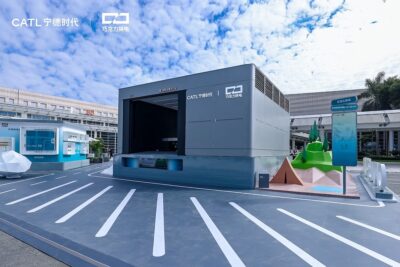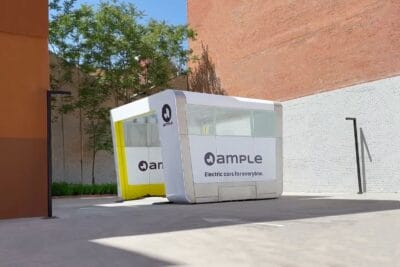BP backs battery swapping in China with Aulton
BP has acquired a stake in Chinese battery swapping specialist Aulton. The resulting joint venture is to offer battery swapping services for taxis, ride-hailing vehicles and other passenger cars, initially in the Chinese city of Guangzhou.
The oil giant is already active in electric vehicle charging infrastructure through bp pulse which has so far only focussed on plug-in charging. Now, BP China has announced that it will acquire an undisclosed number of shares in Aulton’s subsidiary called Guangzhou Aulton, which will be restructured into a joint venture with the energy giant. BP China is not disclosing the specific terms of the agreement.
Although the rollout of battery swap stations will initially focus on Guangzhou, BP also says the new joint venture is actively exploring the possibility of expanding to other cities in the country in the future. BP China notes that the Chinese government is investing heavily in battery swapping infrastructure, with pilot projects and the overall target of promoting 100,000+ vehicles (including trucks) with swappable batteries and 1,000+ battery swapping stations in 11 pilot cities.
The focus of the joint venture will be battery-swapping services for taxis, ride-hailing vehicles, and other passenger vehicles. BP China says that battery swapping stations are especially useful for commercial vehicles, where drivers need to quickly replace depleted batteries with fully charged ones so that they can resume their services as soon as possible.
Aulton is one of the major players in the battery swapping market in China. The company says it has worked with 14 national carmakers to make their electric vehicles compatible with Aulton’s existing battery-swapping network. These include BAIC, FAW, Dongfeng Motor, Changan, SAIC and GAC. The result is said to be 24 electric vehicle models. The Aulton network of battery swapping stations is growing in nearly 30 cities across China, including Beijing, Shanghai, Guangzhou, Changchun, Wuhan, Chongqing, Kunming, and Sanya. Aulton claims to have over 50,000 users so far. Earlier this year, the company announced its goal of establishing at least 10,000 battery swap stations to serve more than 10 million electric vehicles by 2025.
It would appear that Aulton has the existing circumstances to make the most of the government-led drive for battery swapping, while BP, looking to diversify its portfolio off fossil fuels, has the kind of capital and international expansion capabilities to enable an even larger scale expansion, should the cooperation go well.
Incidentally, Aulton is also active in Germany. With the German company InfraMobility, this German-Chinese joint venture is called Infradianba and was founded in 2019. Infradianba installed a European battery swap pilot plant for taxis in Berlin’s Westhafen district two years ago. After a corona break, the pilot station went back into operation in early 2021.
In Germany, the Aulton joint venture has also outlined its plans for further expansion in Berlin: by 2027/2028 at the latest, the network is to be expanded to 30 battery exchange stations in order to electrify the Berlin taxi industry. By 2030, 200 to 300 exchange stations should have been established to cover “other regional commercial transport”. Infradianba is also collaborating with MG Motor on a taxi with exchangeable batteries which is to be presented next month in December.
In China, with the somewhat more massive BP side of Aulton activities, Richard Bartlett, Global Senior Vice President of BP Group’s Electrification and Mobility business, says that the company wants to offer customers the fastest and most convenient charging solution with a battery exchange solution that should only cost drivers “one minute or less” for a fully charged, fresh battery.
gasgoo.com, bp.com (BP China announcement in Chinese), electrive.net (Aulton activities in Berlin in German)





0 Comments